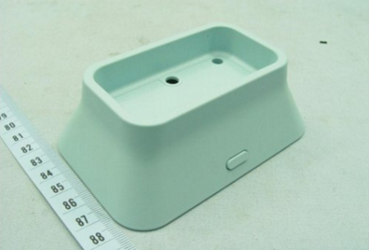Verily's "Connectivity Bridge" Collects Health Data For Medical Research

Verily has revealed a new device that will serve as an information hub to facilitate big data collection, a key component of Verily’s foothold in the medtech industry. The “connectivity bridge” can interface with several medical devices at once and upload data into a cloud for advanced analytics and research, according to filings with the Federal Communication Commission (FCC).
Though the device was approved by the FCC last year, pictures and technical specifications of the device were recently identified by Business Insider. The device is roughly the size of a fist and could be installed in hospitals or at home, communicate with the sensors in several different medical devices, and be used to charge or sync devices through open-source software and a USB port.
Verily hinted at the connectivity device last year during introduction of its “Study Kit” apps, currently being pilot-tested by the company, reported Silicon Valley Business Journal. Study Kit will be Verily’s answer to Apple’s recently introduced platform and app suite, Research Kit.
Aside from the filings, Verily has released no additional information about the gadget, but Business Insider speculated that the device has been used in Verily’s Baseline Study, a “moonshot” project launched last July, and another study recently launched to study multiple sclerosis (MS).
The Baseline project began with 175 people, but soon will expand to include thousands of participants, who will contribute health data through a number of different devices. Verily will collect and assess that data and use patterns and biomarkers establish what “healthy” means, reported the Wall Street Journal. According to project leader and current Verily CEO Andrew Conrad, all data collected will remain anonymous and will not be shared with outside interests.
An MS study with over 2,000 participants is currently underway at Brigham and Women’s Hospital in Boston, led by scientists at Verily and Biogen, maker of several MS medications, reported USA Today. Trial participants are wearing activity sensors and submitting biomaterials such as saliva, blood, and urine for analysis to give researchers a clearer picture of the disease’s progression and activity.
Jessica Mega, chief medical officer at Verily, told USA Today that sensor technology and big-data analysis have advanced to the point where they could be invaluable to medical researchers studying challenging diseases.
Mega was a prominent cardiologist and researcher at Harvard before Alphabet lured her to head up next-generation research at Verily (formerly known as Google Life Sciences), and she was one of many top researchers attracted to Silicon Valley’s expertise in big data analytics.
“What I find compelling is the immersion of people with strong technology backgrounds — hardware and software engineers — sitting next to people like myself,” said Mega in an interview with Nature. “The impact feels very, very large.
